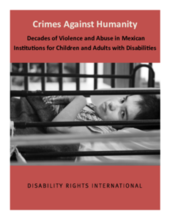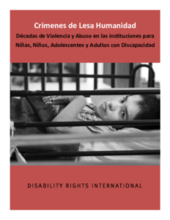Displaying 171 - 180 of 1465
This scoping review focuses on available research articles that directly, or indirectly, engage with children to explore their experiences of living in Residential Care Settings (RCSs) in the Southeast Asia region.
This study builds upon and enhances existing knowledge by exploring the moderating role of social support from educators in residential care and the association between perceived rights and psychological difficulties.
Informed by developmental perspectives that consider young people's development through participation across contexts in everyday life and by research into how parents in ‘ordinary’ families organize care, the authors of this article developed a study based on interviews with 15 unaccompanied refugee minors and their professional caregivers at residential care institutions.
This presentation - delivered by Marinus van IJzendoorn at a 18 November 2020 meeting of the Evidence for Impact Working Group, a working group of the recently launched Transforming Children's Care Global Collaborative Platform - presents evidence of the harmful impacts of institutionalization on children, demonstrates some of the benefits of deinstitutionalization for getting children back on track, and raises questions about gap-year volunteers working in orphanages.
For this study, an exploratory theoretical thematic analysis of the narratives of residential childcare workers in child welfare (RCWs) was performed to further understanding about the nature of the psychological distress reported by RCWs.
The Commission of Investigation into Mother and Baby Homes and certain related matters was established by the Irish Government in February 2015 to provide a full account of what happened to vulnerable women and children in Mother and Baby Homes during the period 1922 to 1998.
The aim of the present study was to examine differences in perceived living group climate between boys and girls in a sample of 344 youth receiving residential youth care in the Netherlands.
This report documents severe and pervasive human rights violations against children and adults with disabilities in residential facilities in Mexico.
Este informe documenta violaciones graves y generalizadas a los derechos humanos de niñas, niños adolescentes y adultos con discapacidad en centros residenciales en México.
This publication presents the latest figures on children and young people in care in Northern Ireland.




